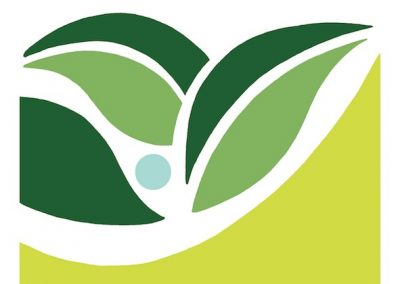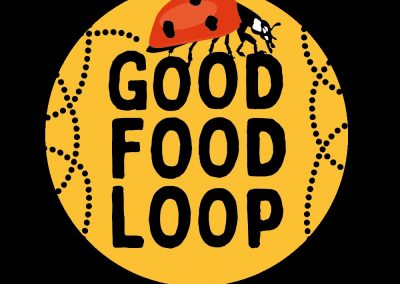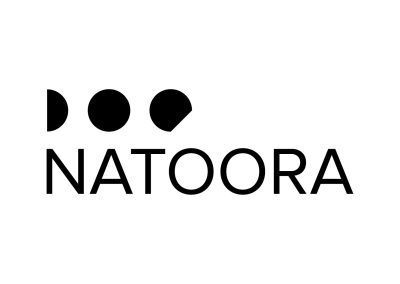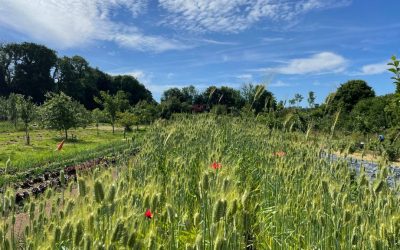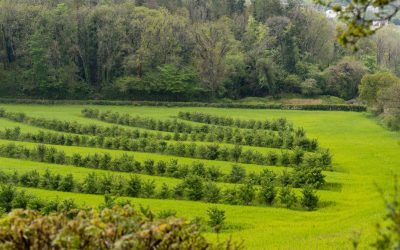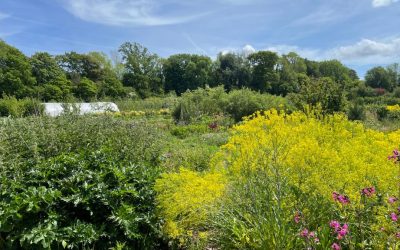overview
- Gain a thorough understanding of farming and the more regenerative, ecological approaches to food production
- Develop the skills you need to work in advisory, or activist roles in food production, supply-chains, and community regeneration
- Learn how to professionally monitor and assess producers against regenerative farming principles and practices
- Gain practical experience and insight in growing and running a food-oriented business
- See also: MSc Regenerative Food, Farming & Enterprise
term dates
2023-24
Autumn term: 25 September 2023 – 15 December
Winter term: 08 January 2024 – 28 March
Spring term: 29 April – 22 July
2022-23
Welcome week: 19 – 23 September 2022
Autumn term: 26 September – 16 December
Winter term: 09 January 2023 – 31 March
Spring term: 17 April – 07 July
register for updates
You can also sign up for emails from us. We’ll keep you up-to-date and alert you when key deadlines are approaching.
Learning pathways
This course is a residential programme during term time, and for the first year you are invited to stay on the Dartington estate to really immerse yourself in the experience.
Bachelor of Science (FT/PT; 360 credits)
Regenerative Food and Farming BSc (Hons) is available full time over three years (UK, EU or international students) or part time over six years (UK students only).
For a full breakdown of how the part time route works, download the schedule here (pdf).
Diploma of Higher Education (240 credits)
The DipHE offers an excellent entry point into certain careers. At two years, rather than three or four, it’s a speedier and more direct route into certain vocations, but it still equips you with the expertise that the job requires.
Certificate of Higher Education (120 credits)
It is the most basic level of qualification that a student can gain in higher education.
Completing a CertHE can demonstrate individuals’ capability of studying at university level. It can raise confidence, support a career change, or progression in a current career.
short course (unaccredited)
course content
This course gives you the opportunity to explore leading-edge alternatives to mainstream agriculture in a unique practical setting on the Dartington estate. You’ll gain a change-mindset through a programme that combines practical and theoretical learning, studying alongside expert researchers in ecological approaches and practicing farmers, while also taking on your own work placements and independent projects.
When examining environmental and social sustainability, food systems are key. Sustainable farming practices can regenerate natural resources and rural economies, but they are only feasible if supported by retailers and consumers.
Consumer choices are governed by culture: education, cost, marketing and convenience. In order to create a more sustainable food system, we must first understand the system as a whole. Where are the barriers and opportunities? Where are the entry points for effective change? How can we build a thriving and resilient food and farming sector? What roles will food production and food enterprise play in shaping future food systems?
During your time in Schumacher College’s BSc in Regenerative Food and Farming, you will live and learn in a residential community environment on the stunning 1,200-acre Dartington Estate, which has been devoted to exploring sustainable agricultural practices since its establishment in 1925. In 2012, we renewed this focus with a manifesto to develop the estate land as an exemplar of agroecological practice. Most recently, in 2020, Dartington Trust focused its mission on being a centre for regenerative living and learning which fully integrates ecology, social justice, and the arts in an educational context.
Dartington, Totnes and South Devon have a vibrant ethical, local food culture supported by the world-renowned Transition Town Totnes. This setting offers a unique and exciting place from which to explore the future of sustainable and regenerative food and farming. We are delighted to be working with some excellent partners to deliver the programme including School Farm CSA and the Apricot Centre here at Dartington and Riverford just down the road.
Our Partners
programme structure & modules
Each year is worth 120 credits in total, and is delivered in a 3-term structure which consists of roughly 8 weeks of study time followed by a 2-week assessment period each term. We offer relevant short courses within the 2-week assessment periods to give students the opportunity to gain additional knowledge and skills.
Year 1
Global Food systems
Food & farming business sits within the context of a global food system. This module gives an overview of the system as a whole and the multiple factors at play, for example, supply chains, economics, policy, food security, food justice, culture and public health. Students will learn and apply academic study skills to explore the ethical, environmental and socio-political implications of the food system.
The Evolution and Revolutions of Agriculture
This module contextualises modern agriculture by exploring how farming has evolved over time, through four ‘revolutions’, to be what it is today. Students explore the environmental and social impacts of different modern approaches alongside economic advantages and disadvantages. This will form a foundation upon which students will make comparisons, judgements and ultimately choices about agricultural systems.
Environmental and Agricultural Biosciences
This module provides a foundation of scientific theory for understanding of the biological and ecological factors relating to food production. Students will learn the basic principles of ecological systems, plant physiology, animal physiology and soil biology.
Ecological and Regenerative Agriculture
This module introduces the concepts of Agroecology and Regenerative Agriculture, and a broad range of sustainable food production methods currently in use. Students will begin by exploring measures of sustainability and apply those to a critical analysis of ‘sustainable’ food production systems and methods, drawing comparisons with some of the conventional approaches discussed in the Agricultural Systems module.
Food and Health
Examining the ways in which individuals, communities, and societies produce, distribute, and consume food is a core part of regenerative food and farming, but nutrition policy is often overlooked within this paradigm. In this module students will study the relationship between food and health, and how nutrition policy might influence both food production and processing and personal and public health.
Introduction to Agri-food Business
An introduction to key business management principles, strategies and functions within the Agri-food business context, such as financial management; business strategy; the marketing environment; business analysis; consultancy; and report preparation. Students will learn about the main types of agri-food businesses in the UK and utilise an analytical and problem-solving approach to analyse business ideas.
Year 2
Practical Research Methods
This module will enable students to design and conduct their own scientific research trial in a chosen area of interest. They will learn practical research methods and apply them to self-designed trials, the results of which will be individually and collectively presented for critical analysis by the students themselves. This learning will then be applied to the interpretation and critical analysis of existing research.
Agri-food Marketing and Markets
This module covers the essential knowledge and skills required for effective agri-food marketing for businesspeople and consultants in the sector. This will include the study of the different types of UK and global agri-food markets and an exploration of the factors affecting consumer attitudes and behaviours. Students will learn the key principles of and strategies for effectively marketing ‘sustainable’ food products.
Crop Production Science
Building upon Environmental and Agricultural Biosciences in Level 4, this module will expand knowledge of plant biology and physiology and apply that knowledge for good crop management, plant growth and health, including a range of approaches and methods for pest and disease prevention and treatment. Students will learn how to evaluate system health through plant, soil and biodiversity indicators.
Farming with Animals
The scientific principles underlying the health and well-being of livestock with the application of scientific knowledge through a range of practical skills and tools. Students will explore a range of sustainable and ethical management approaches including mixed farming systems. Building upon knowledge gained in Level 4 modules Environmental & Agricultural Biosciences and Ecological and Regenerative Agriculture.
Animal-free Farming
Industrial livestock farming can have negative animal welfare and environmental impacts, leading many people to choose plant-based diets. This module explores regenerative approaches to maintaining soil fertility and system health without the use of animal inputs. Using case studies and research, the practical, economic, social and environmental implications of animal-free farming will be evaluated.
Professional Practice
Observing business theory in practice with an 8-week period of work-based learning within an appropriate farming and/or food business which demonstrates a sustainability ethos and sustainable practices. The student will analyse and evaluate operational systems, reflecting on their apparent efficacy, advantages and disadvantages. Students will develop practical skills and gain relevant career experience.
This module enables the student to see business theory in practice with an 8-week period of work-based learning within an appropriate farming and/or food business which demonstrates a sustainability ethos and sustainable practices. The student will observe and analyse management approaches, reflecting on their apparent efficacy, advantages and disadvantages. This period will also provide an opportunity to develop practical skills and gain relevant career experience.
Research Practice
Observing the way in which a research organisation is run during an 8-week period of work-based learning within an appropriate academic research organisation which undertakes agri-food projects with sustainability foci. The student will analyse the strategic, management and operational approaches in use. This period will also provide an opportunity to develop practical skills and gain relevant career experience.
Year 3
Honours Research Project Introduction
The student chooses from a range of project briefs to undertake a self-directed study for their own research, investigation, project or business proposal resulting in a report of their findings, a project proposal or a business plan. In this first part, students are guided in using time management and study skills to plan their project and begin study under supervision.
Honours Research Project
In this substantial personal project, the student integrates subject-specific knowledge and skills to develop a specialist area of knowledge in depth. With supervision from a subject specialist, the student undertakes their chosen self-directed study of research investigation, project or business proposal resulting in a report of their findings, a project proposal or a business plan.
Innovative Production Systems
Familiarises students with current and evolving developments in regenerative food production and develops scientific understanding of the processes underlying innovative production methods and their cumulative effect. Systems are critically analysed in terms of their ‘regenerative’ value and studied in depth to identify appropriate contexts and limiting factors for adoption and efficacy.
Agri-food Technology
Introducing students to a broad range of technologies available for use in agri-food business. This will include practical technology for crop and animal production and software for monitoring growth, health and productivity in the field, and machinery for small-scale and/or on-farm food processing. Students will also explore the concept of ‘appropriate technology’ in relation to sustainable food and farming business.
Managing Sustainable Food Enterprises
This module focuses on the strategic management theories and practical management procedures applied within the context of regenerative agri-food business. This will include in-depth study of financial and operational business management, including, for example: financial and management accounts, human resource management, operations management and supply chain management.
Contemporary Issues in Food and Farming
In this module, students will explore the factors which influence the ways in which food is produced and consumed, and how these impact upon society as a whole and the health, well-being and rights of individuals. This will include contemporary issues such as food security, food justice, food provenance, the rise of ‘alternative’ food supply chains or proposed agricultural policy.
Where will I study?
You’ll be based on the stunning Dartington Estate – a countryside estate that includes Schumacher College’s regenerative growing spaces, leading examples of permaculture and agroforesty in practice, as well as a traditional English country Deer Park. You’ll also have access to glasshouses, polytunnels and related resources. Read more about the College’s main agroforestry growing space, Henri’s Field, via this link >
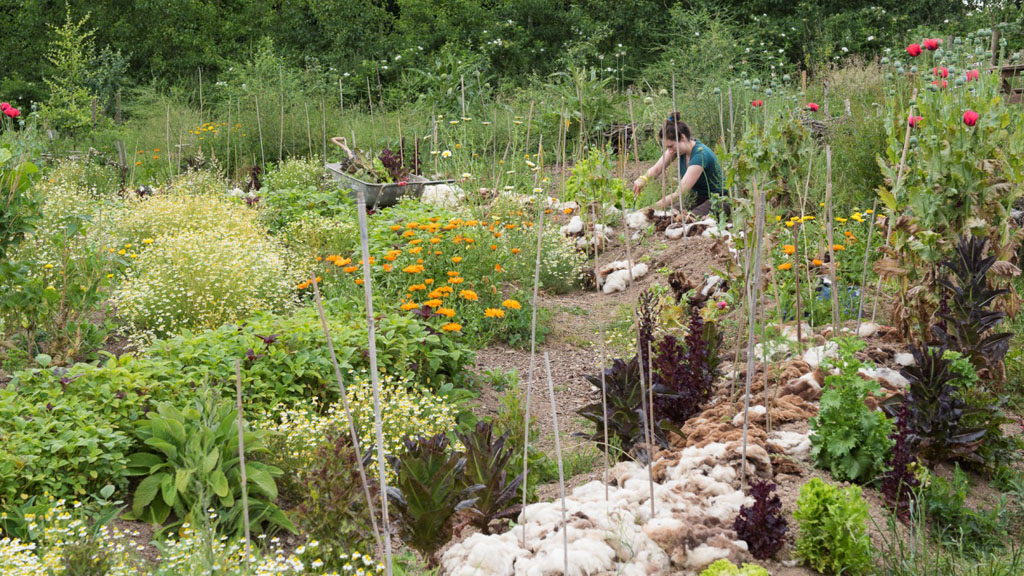

entry requirements
All applicants must have GCSE (or equivalent) Maths and English at Grade C or above.
(A Foundation Biology course will be provided prior to Level 4 for those without science subjects to Level 3, enabling a broader intake of non-standard entries with relevant work/industry experience, dependent on interview.)
As well as meeting the above GCSE qualifications, you must hold at least one of the Accepted Qualifications, as follows:
accepted qualifications (tap to expand)
A-level/AS-level
Minimum of 80 UCAS points at A/AS Level (CDD) or equivalent to ideally include a science, humanities or business subject.
BTEC National Diploma/QCF Extended Diploma
Candidates are interviewed before an offer is made. 80 UCAS points from an extended diploma (MMM) ideally in a relevant subject (e.g. Horticulture, Arboriculture, Agriculture, Countryside Management), although all applications will be considered individually.
Access to Higher Education at level 3
Applications from Access to HE programmes are welcomed, and will be considered on an individual basis. Candidates are interviewed before an offer is made.
Welsh Baccalaureate
80 UCAS points from Welsh Baccalaureate Advanced Skills Challenge Certificate and/or Advanced Diploma to ideally include a science, humanities or business subject.
Scottish Qualifications Authority
80 UCAS points from Scottish Higher, Advance Higher and/or a Scottish Baccalaureate Interdisciplinary Project, to ideally include a science, humanities or business subject.
Irish Leaving Certificate
68 UCAS points at Higher Level, to ideally include a science, humanities or business subject, plus Ordinary Level Grade C Maths and English
International Baccalaureate
80 UCAS points overall to include 1 at HL, to ideally include a science, humanities or business subject. If overseas and not studying English within IB, must have IELTS 6.0 overall with 5.5 in all other elements.
Non-Standard Entry
Mature students represent one of our main target groups and are therefore welcomed to apply, especially with relevant work and industry experience. They will be required to demonstrate at interview the necessary knowledge, experience and motivation to participate in the course. The programme will be offered in both full-time and part-time formats to increase accessibility for non-standard applicants.
mature/non-standard applicants
The programme is offered in both full-time and part-time formats to increase accessibility for non-standard applicants. Mature applicants with relevant experience but without the stated qualifications will be considered individually and are encouraged to apply. All applicants will be required to demonstrate the necessary motivation, potential, experience and/or knowledge at interview.
fees & Funding
For full details on our fees, plus information about scholarships, student loans and bursaries, click here.
We encourage BSc students to live on campus for the first year of their studies. Further information on the unique experience of living on the Dartington estate, as well as rates for our full board accommodation, can be found here.
Bursary for English Students
We will be supporting the first cohort of full time students in this new programme by offering up to 25 bursaries of £3,000 to cover the difference between the Student Loan (£6,000) and the tuition fee (£9,000) for their first year. In future years we anticipate having a new status with Office for Students to allow students to apply for a Student Loan to cover the full tuition fees. The scheme is open to all full-time applicants applying from England who are eligible to apply for support from Student Loans Company England and are starting their studies in September 2022. This scheme will work on a first come first serve basis and will be automatically offered to the first 25 eligible applications via UCAS. International students may still apply to the general bursary pot.
For full details and to apply, head here >
Dartington Learning Bursary Fund
If you are not eligible for the above, you are still welcome to apply to the Dartington Learning Bursary Fund, which can cover up to £5,000 of the tuition fees. Full details can be found here.
staff
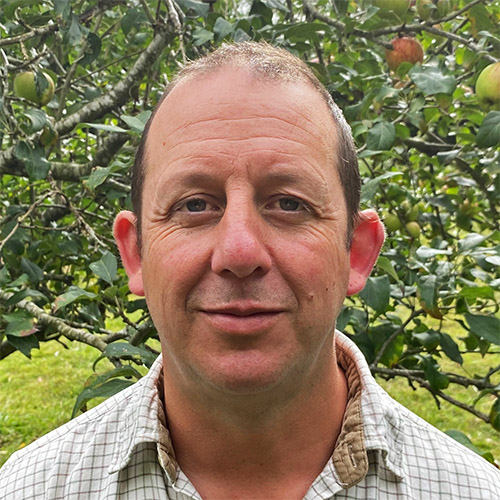
Dr Simon Platten
simon.platten@dartington.org
Dr Simon Platten is senior lecturer and course lead for BSc Regenerative Food and Farming, and lecturer for our MSc Regenerative Food, Farming and Enterprise.
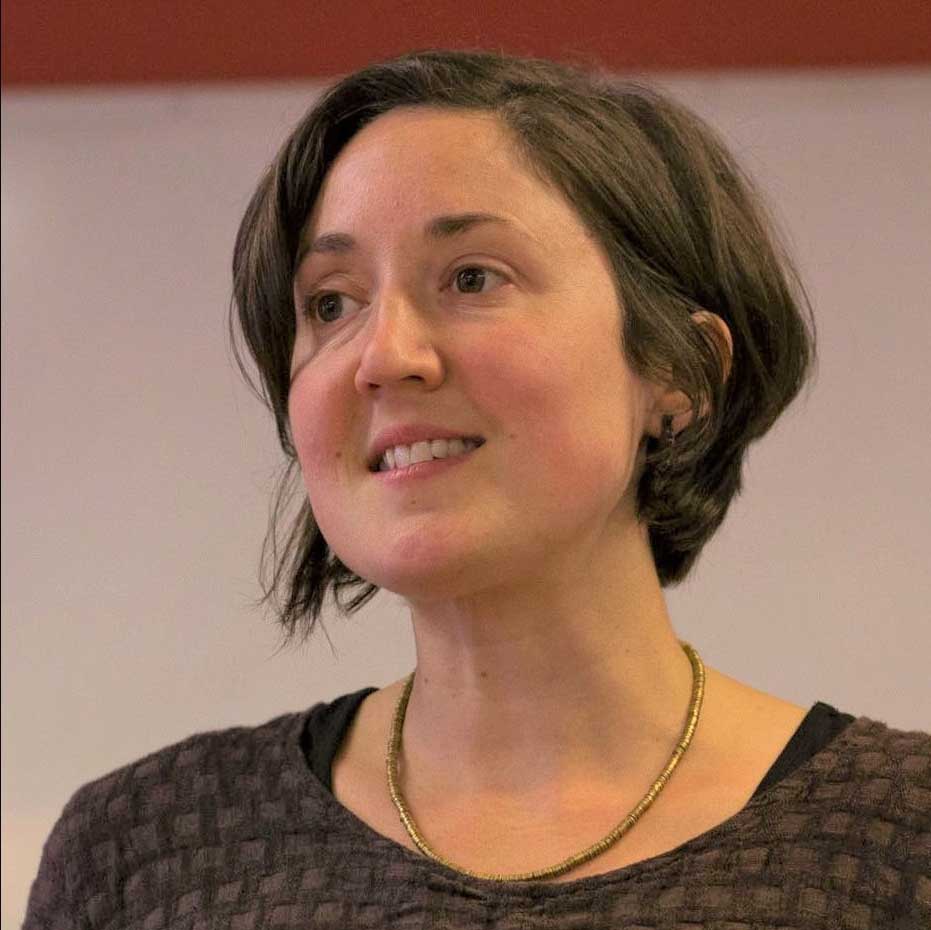
Caroline Aitken
Caroline is Associate Lecturer on our Regenerative Food and Farming programme. She is also director of Whitefield Permaculture, an adult education and land design consultancy based in Devon.
guest lecturers

AMY CAIRNS
Read More

Charlie Clutterbuck
Charlie is an expert on soil health, and how soil life is crucial to healthy ecosystems.
Read More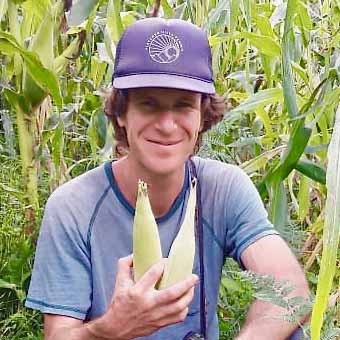
Dr Nathan Einbinder
Nathan is course lead for our Regenerative Food, Farming & Enterprise programme.
Read More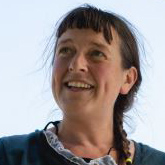
Melissa Harvey
Melissa Harvey is a grower, horticulture teacher and facilitator. She is a lecturer on our MSc Regenerative Food, Farming & Enterprise programme.
Read More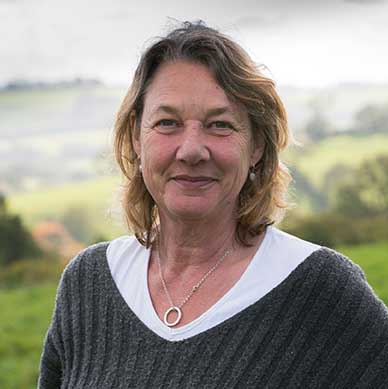
Marina O'Connell
Marina is a director of the Apricot Centre at Dartington.
Read More
Lynne Davis
Lynne Davis has been working in food systems transformation for over a decade.
Read Morecareers
This course has been designed to guide you to and prepare you for entering this exciting sector in a range of roles.
The expertise you develop throughout the course will enable you to either work in farming or food business at a managerial level, or in advisory roles for sustainable farming and food businesses.
There are many diverse career opportunities in all sectors of the food chain for people with knowledge and skills in regenerative food and farming. The holistic and practical nature of the programme alongside our diverse range of industry partnerships provides invaluable support networks and employment opportunities for graduates.
As a regenerative food and farming graduate you may go on to some of the following career paths:
- Managing a farming enterprise
- Managing a food enterprise
- Working in food supply and distribution organisations
- Advising on regenerative practice in food and farming
- Advising on sustainable business for food and farming
- Working for NGOs and campaign organisations on food and farming issues
- Working in food and/or farming policy
- Regenerative food and farming research
This programme also develops transferable skills such as academic, research and business skills.
Praise for Regenerative Food and Farming BSc
“As a new entrant grower some years ago, I searched for a course like this, combining practical and business skills within a wholistic perspective. Now, as a potential employer, this course looks set to equip students with a valuable breadth and depth of experience in sustainable food and farming, ready for this vital and growing sector. This course is an important part of the future of farming which is both efficient and ecologically regenerative.”
– Melissa Harvey, farmer and trainer at School Farm CSA
“This BSc is fit and ready to prepare students for the new agricultural era. If you’re after ethical and sustainable thinking then this course should be top of your list.”
– Ian Wilkinson, Cotswold Seeds and FarmEd
live chats & open days
latest news & blogs
Finding a better wheat for the future
Our horticulture team at Schumacher College are taking part in trials through the South West Grain Network to find new strains of wheat that are grown more effectively in our climate. We catch up with Michael Cooper, one of our horticulture interns this year to find out more…
Government’s food strategy maintaining the status quo – but at what cost?
In response to the Government Food Strategy published today, we consider the lack of detail and focus on developing authentically regenerative practices, and the need for a thoughtful, holistic approach with more immediately tangible action points.
Transforming the food system is no longer optional
Dr Nathan Einbinder blogs about the current food price rise and argues that this moment of crisis can and must be a catalyst for real change in the farming sector.


